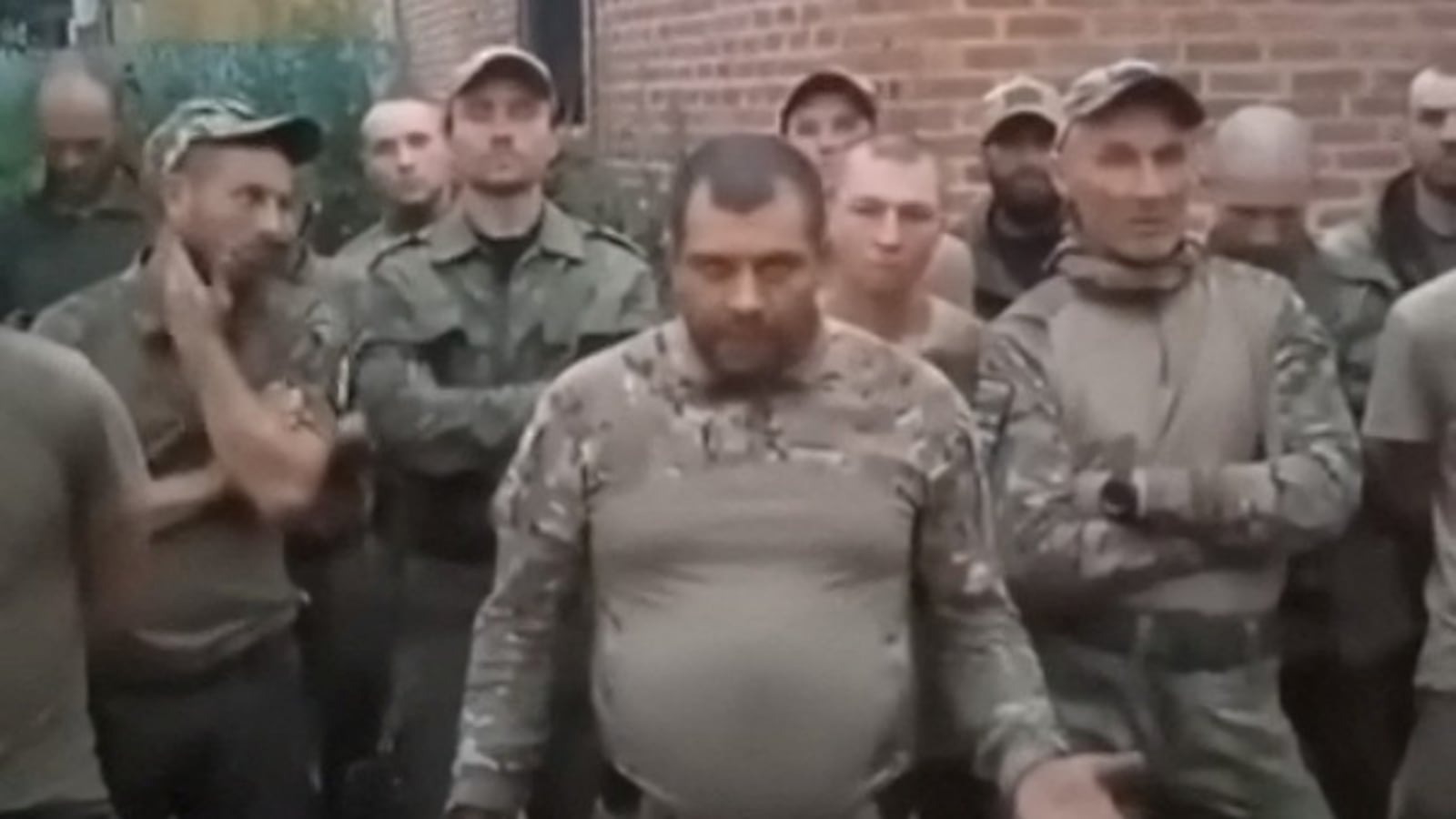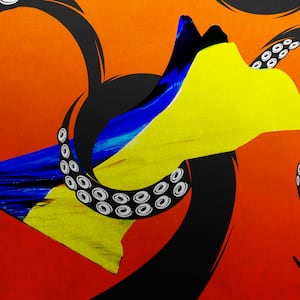During World War II, Joseph Stalin imposed a draconian punishment for soldiers who retreated or left their posts without authorization: They would be made to join “punishment battalions” that would in turn be deployed to the most dangerous parts of the front, effectively a death sentence.
This year, Russian President Vladimir Putin has resurrected the practice of throwing penal units into battle, according to a report, with so-called “Storm-Z” squads shipped off to to the site of some of the most intense fighting in Ukraine. As with their Soviet predecessors, those who find themselves in such squads allegedly face extreme danger, as well as disregard from commanders who view their lives as less important than those of ordinary troops.
According to a Reuters report, the penal units consist of between 100 and 150 members and are made up of both civilian and military offenders. The units are embedded within regular Russian army units and have typically been sent to “the most exposed parts of the front and often sustain heavy losses,” sources familiar with the squads said.
Storm-Z squads are made up of convicts who join in order to have their crimes pardoned and regular soldiers who are being punished for violating military disciplinary rules, according to the report. Unlike the mercenary Wagner Group, which similarly recruited convicts for the invasion of Ukraine, Storm-Z units are allegedly operating under the direct command of the Russian Defense Ministry.
Soldiers have reportedly been ordered into the units for disciplinary transgressions including drinking while on duty, using drugs, and refusing to follow orders. Once pressed into Storm-Z squads, troops are no longer held in the same regard as their former comrades.
“Storm fighters, they’re just meat,” one regular Russian army soldier said. He added that he had himself given treatment to a group of six or seven wounded Storm-Z fighters on the battlefield despite being ordered not to by a commander. The unnamed soldier, from Army Unit No. 40318, also said he sympathized with men thrown into the punishment units. “If the commandants catch anyone with the smell of alcohol on their breath, then they immediately send them to the Storm squads,” he said.
Troops in Storm-Z units have also spoken out about their desperate situation themselves. In June, a group of around 20 Storm fighters recorded a video complaining about their treatment, saying they refused to return to the front in Zaporizhzhia.
“On the frontline, where we’ve been, we did not get deliveries of ammunition,” one fighter says in the footage. “We did not get water or food. The injured were not taken away: still now the dead are rotting.” He went on to add, “We’re given dreadful orders that are not even worth carrying out,” and “We refuse to continue carrying out combat missions.”
Although the Russian Defense Ministry has never acknowledged creating or deploying Storm-Z units, their existence emerged in April when the Institute for the Study of War think-tank shared details of a purported Russian military report about the squads being established. It said the Storm-Z companies were being “created outside of conventional army unit structure” and that their fighters were being given just 10-15 days of refresher training, “a remarkably short amount of time to adequately train personnel (even reservists with some experience) to perform complex combat tasks and create unit cohesion.”
On Friday, Putin said during a televised meeting with Russian servicemen that he was aware of convicts fighting in the army, specifically referencing two former inmates who had been killed in action. “They gave their lives for the motherland and have fully absolved themselves of their guilt,” he said.






